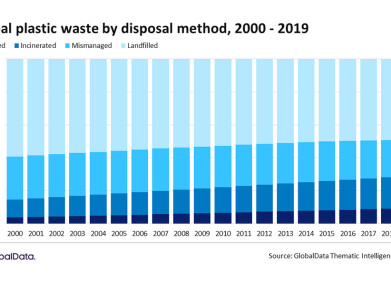Fuel for Thought
Why Are Additives Added to Fuel?
Mar 19 2019
From alcohols and ethers to benzenes and paraffins, additives claim to enhance the quality of fuels and boost performance of the engines they're used to power. The modifiers promise to address issues like weak acceleration, low mileage and rough idling, as well as enhance overall engine performance and keep engines running clean. While the benefits of fuel additives are often hotly debated, they remain a popular product at consumer petrol stations and Formula 1 pit stops alike. Here's why:
Boost octane levels
Increasing the octane rating of fuel is one of the most popular functions of additives like alcohols, ethers and manganese. When added to the tank they work to improve engine performance in terms of acceleration, efficiency and maximum speed. Motorists find these promises hard to resist, whether they're driving a trusty family wagon or a top-of-the-range sports car. Octane boosters also claim to reduce emissions, which can be an attractive selling point for eco-friendly motorists.
Engine maintenance
Some fuel additives are designed to promote a healthy engine and actively target corrosion, act as lubricants and prevent build-up of trace deposits. When it comes to older cars, mechanics assert that as well as cleaning up the fuel injection process, fuel additives can reduce carbon build-up in the engine valves and promote an even burn in the combustion chamber. Additives are also coveted by car owners who maintain engines built before the 1970s, which were designed to run on leaded gasoline. These sorts of additives are designed to help retro engines run on modern, unleaded gas.
A smooth ride for diesel drivers
When temperatures drop, diesel drivers can often face the problem of congealed fuel in the tank and lines. Anti-gelling fuel additives work to prevent solidification and keep diesel flowing smoothly through the filter and engine.
Save cash and maximise mileage
While fuel additives require an initial outlay, many motorists assert they pay for themselves in the form of heightened performance and better mileage. Ultimately, additives help to ensure fuel lithely cycles through the engine. From a maintenance perspective, fuel additives can also be a clever way to minimise costs at the mechanic.
As well as topping up the tank with fuel additives, savvy motorists will be heading to the upcoming PETEC 2019 conference in May for up-to-the-minute information on the best fuel types and technologies.
Want to know more about the latest gas chromatography technologies being used to detect paraffins, isoparaffins, olefins, naphthenes, aromatics, hydrocarbons and other additives? Don't miss 'Vacuum Ultraviolet Spectroscopy for Analysis of Diolefins and Non-Traditional Gasoline Additives' which introduces ASTM D8071 gas chromatography - vacuum ultraviolet spectroscopy (GC-VUV) as an effective way to analyse fuels in less than 35 minutes.
Digital Edition
PIN 25.2 Apr/May
May 2024
Safety - Carbon monoxide toxic and flammable gas detection Analytical Instrumentation - Density: A fundamental parameter at critical stages within the petroleum sector - Advancements and...
View all digital editions
Events
Jul 10 2024 Birmingham, UK
Thailand Oil & Gas Roadshow 2024
Jul 11 2024 Rayong, Thailand
Jul 20 2024 Denver, CO, USA
Jul 21 2024 Cape Town, South Africa
Jul 24 2024 Bogata, Colombia


















